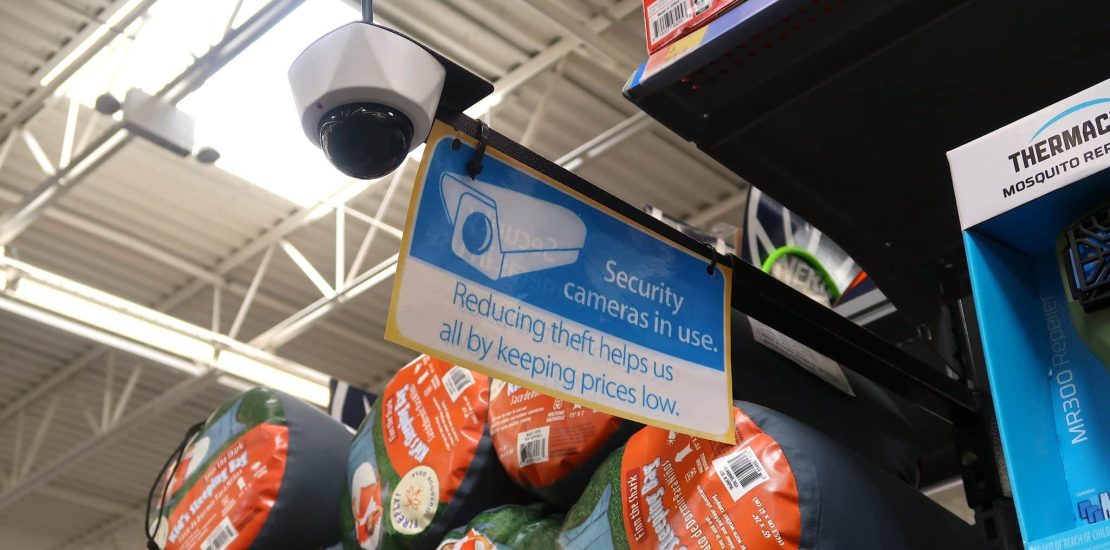- November 25, 2024
- Posted by: Regent Harbor Team
- Category: Business

## When Security Gets Personal: Facial Recognition in Retail
Walk into a store these days and chances are, they’re watching—and I don’t mean just with the usual surveillance cameras. Retailers in Australia and the UK are all about facial recognition to make sure sticky fingers don’t prosper. But what’s the deal with public opinion and those pesky regulators? It’s a bit of a drama, let’s break it down.
### A Look Down Under: Australia’s Bunnings Takes Center Stage
The folks down at Bunnings, the retail giant in Australia known for gardening and hardware, had a bit of a privacy law hiccup. The [Australian data watchdog](https://www.biometricupdate.com/202411/australian-privacy-commissioners-frt-ruling-could-have-major-implications-for-retail) slapped them on the wrist for not really asking for your permission before capturing your mugshot. This [little poll](https://www.news.com.au/technology/how-facial-recognition-technology-puts-us-in-a-virtual-lineup/news-story/549ee81624ff557d801e9dbd6289edda) revealed a twist—78% of nearly 11,000 Aussies were all for it. They called facial recognition an “important tool,” probably after Bunnings [disclosed footage](https://www.news.com.au/lifestyle/real-life/news-life/nudity-punches-in-newly-released-bunnings-cctv-as-company-found-to-breach-privacy-act/news-story/6c488d41706d87df2e5d2ca9393764aa) showing their employees were having a rough time with unruly customers.
Bunnings argued with some impressive numbers: the tech purportedly slashed incidents of abuse, threats, and assault by half. Not too shabby, huh? Nevertheless, the Office of the Information Commissioner (OAIC) felt the laws were being breached since biometric data like face captures is a sensitive territory. Consent is kind of important, after all.
### The Sceptics and Their Concerns
Former Australian Human Rights Commissioner Edward Santow shared some worry. He wasn’t convinced about the security whimsy and called out this digital snooping as a “virtual lineup.” Santow also highlighted the bias issues with these systems—they’re not so good with faces that don’t look like a default mannequin.
The decision shook the corporate world. Consumer group Choice sang praises, calling the OAIC’s ruling “landmark,” and sounded the alarm about retailers like Kmart who were also up for a regulatory review. Hello, wake-up call! Andrew Nichols from Mullins law firm warns all organizations: there’s no room for nonchalance when it comes to privacy practices. This case is your reminder you’d better respect it or face the music.
### Across the Pond: The UK’s Take
Over in the UK, we’ve got Iceland Foods not exactly playing it quiet about shoplifters either. The numbers are jaw-dropping—17 million shoplifting cases a year in the UK, causing a colossal £2 billion ($2.5 billion) leak in revenue. Iceland Chairman Richard Walker went public on [LinkedIn](https://www.linkedin.com/in/richard-walker-iceland/recent-activity/all/) about his openness to facial recognition, considering it a valid response against crime. The Justice and Home Affairs Committee emphasized the use of these surveillance tactics to crack down on organized retail crime, tagging it a likely indispensable ally.
### Stateside Scenario: Target’s Legal Tangle
Meanwhile, back in the States, Target’s in hot water—Illinois style. The [lawsuit](https://www.scribd.com/document/795754924/Target-Facial-Recognition-Amended-Complaint#from_embed) hinges on a group of former customers claiming unauthorized biometric data collection. The judge decided the plaintiffs did a good job of alleging Target’s conduct, even when the retail titan tried shrugging the complaint off as mere internet hearsay, notes [USA Today](https://www.usatoday.com/story/money/2024/11/22/target-class-action-suit-biometric-data/76505989007/). Target got all hush-hush about their video surveillance provider, refusing to spill the name. Feels like some serious cloak and dagger.
### Fresh Alternatives and the Way Forward
While the debate burns bright, France has something new. Veesion, a [Paris-born startup](https://veesion.io/en/), ditched face tech for AI that monitors body movements. They reckon mimicking shoplifting acts is the way to go, no identity capture needed. Their tech alerts staff in real-time, turning everyday cell phones into firsthand theft deterrents. Think of it as a more polite way of saying “We’re watching you.”
Veesion promises to overcome biases tied to traditional systems. Co-founder Benoit Koenig preached that their AI smarts doesn’t judge your shade or gender. Currently, it’s running in a whopping 4,000 stores worldwide, including 500 stateside, [according to CBS News](https://www.cbsnews.com/detroit/news/retail-owners-using-artificial-intelligence-to-detect-shoplifting-in-real-time/).
Hidden behind all the security jazz lies a contentious chat about public privacy. Many businesses stand by as Ireland and the UK wrangle facial recognition with varying degrees of acceptance and mistrust. The conversations and decisions made today shape tomorrow’s shopper’s experience—here’s hoping for a blend of safety and respect.
—
### Additional Reads
Feel like diving deeper into the nitty-gritty of biometric security? Check out these topics:
– [Digital Identity in Retail](https://www.biometricupdate.com/tag/retail-biometrics)
– [The Future of Video Surveillance](https://www.biometricupdate.com/tag/video-surveillance)
